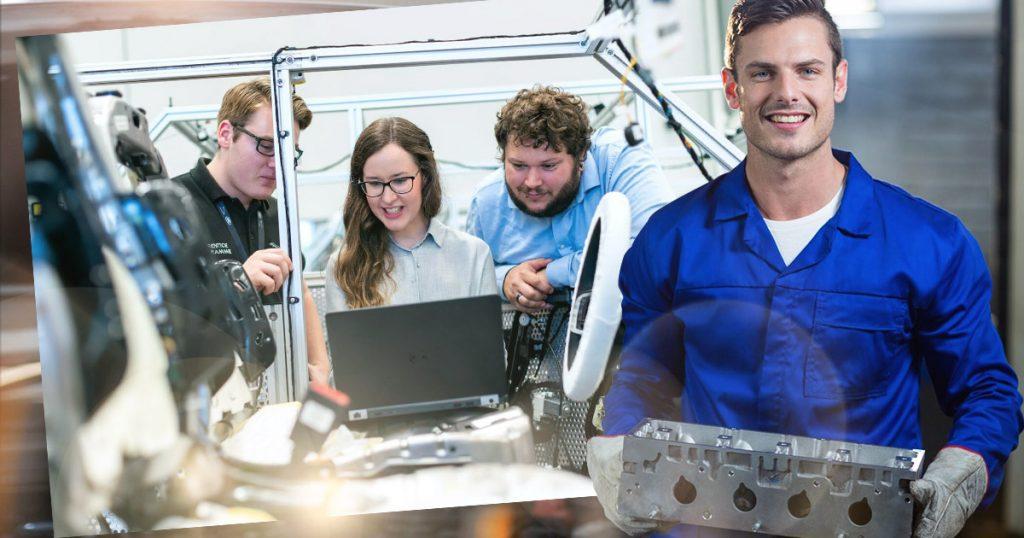Owning a car is more than just enjoying the drive; it also means being responsible for driving safely and knowing some basics about car repairs. With more cars on the road than ever, there’s a growing need for people who know automotive technology. Studies show that the market for car repair and maintenance is expected to grow a lot, reflecting the increasing number and complexity of vehicles. For those who love cars, learning about automotive technology can be both a fulfilling hobby and a pathway to a rewarding career. Knowing how your car works and how to keep it in good shape is not just useful—it’s an important skill in our fast-paced world.
Understanding Automotive Technology: A Study and Career Path
Automotive technology is an exciting and constantly changing field that focuses on vehicles that move on their own, like cars and trucks. It involves learning about how these vehicles are designed, built, operated, and maintained. This field combines ideas from engineering, electronics, and computer science to make vehicles safer and perform better. If you choose a career in automotive technology, you’ll be at the forefront of innovation, using advanced tools and systems to work on vehicles.
To do well in this field, you need to develop both technical and practical skills.
- Technical skills involve using computerized tools to diagnose problems and understanding how engines, transmissions, and electronic parts work.
- Practical skills are just as important, including solving problems, thinking critically, and fixing complex mechanical issues. Good communication is also key, as you’ll need to explain technical details to customers and work well with your team.
With these skills, you can succeed in various roles, from being a mechanic to becoming a specialist in advanced automotive technology.
Educational and Technical Requirements for a Career in Automotive Technology
Starting a career in automotive technology means you need to meet certain educational and technical requirements to be ready for the job. While some entry-level jobs might offer training on the job, most employers prefer candidates who have completed formal education and training. Here’s what you need to know:
Educational Qualifications
Associate Degree
Many technicians begin with an associate degree in automotive technology, which usually takes about two years. This program covers basics like engine repair, transmission systems, and electrical systems.
Bachelor’s Degree
If you aim for managerial or specialized roles, a bachelor’s degree in automotive technology or a related field offers advanced knowledge and leadership skills.
Certifications
ASE Certification
The National Institute for Automotive Service Excellence (ASE) provides certifications that prove a technician’s skills in areas like engine repair, heating and air conditioning, and electronic systems. These are highly valued by employers.
State-Specific Certifications
Some states require extra certification or licensing, especially for emissions testing and vehicle inspections.
Technical Training Programs
Vocational Schools
Many future automotive technicians go to vocational schools for hands-on training and courses focused on automotive systems and repairs.
Apprenticeships
Getting practical experience through apprenticeships or internships is crucial. These programs offer real-world experience and guidance from experienced professionals.
Continual Learning
The automotive industry is always changing with new technologies and innovations. Technicians need to commit to lifelong learning and continuous education to keep up with the latest advancements and stay competitive.
Is Automotive Technology a Good Career Choice?
Choosing a career in automotive technology has many benefits that make it an attractive option for many people. As an automotive mechanic, you not only find job stability in a field that is vital to daily life, but you also have chances for career growth and personal satisfaction.
Job Stability
The automotive industry is a key part of the global economy, which means there is always a need for skilled technicians to keep the increasing number of vehicles running smoothly. This constant demand makes it a secure career choice. For example, with more cars on the road, services like regular maintenance and repairs are always needed.
Opportunities for Advancement
As you gain experience and continue your education, many career paths become available. You could move up to roles like shop manager or service advisor, or even start your own repair business. Further education and certifications can also lead to jobs in automotive engineering or technology development.
Satisfaction of Working with Cutting-Edge Technology
The automotive industry is leading in technological innovations, such as electric cars, self-driving systems, and smart car features. Working as a mechanic lets you interact with these new technologies, which can be very rewarding if you love technology and innovation.
Automotive Technology Solutions and Future Changes
As we look to the future, the automotive industry is on the verge of major changes, thanks to exciting new technologies. Key trends like electric vehicles, self-driving cars, and smart car features are set to transform how we think about transportation.
Electric Vehicles (EVs)
With a focus on sustainable energy, electric vehicles are crucial in cutting down carbon emissions and reducing our reliance on fossil fuels. As battery technology and charging stations improve, EVs are becoming more affordable and widespread, leading us toward a cleaner future.
Autonomous Driving
Self-driving cars are poised to change transportation by using artificial intelligence and sensors to improve road safety, ease traffic, and make mobility more accessible for everyone.
Smart Car Technologies
Cars are becoming smarter with features like vehicle-to-vehicle communication, biometric access, and advanced driver-assistance systems (ADAS), making driving safer and more connected.
These advancements are not only changing how cars are made and designed but also opening up new opportunities in the automotive technology field. Staying updated with these trends is essential for professionals who want to make the most of these technologies and contribute to this fast-evolving industry.
